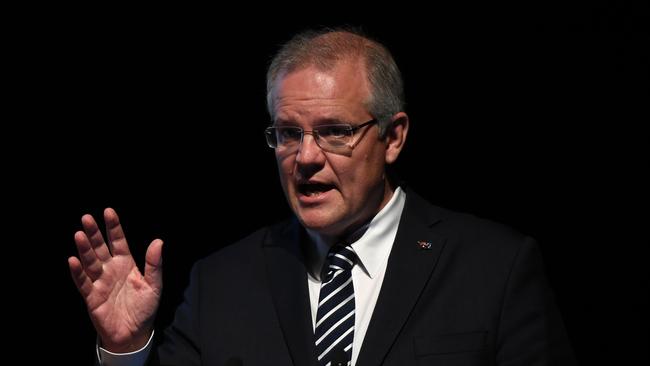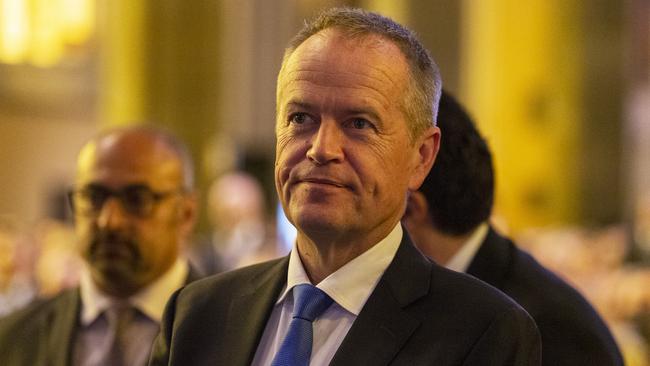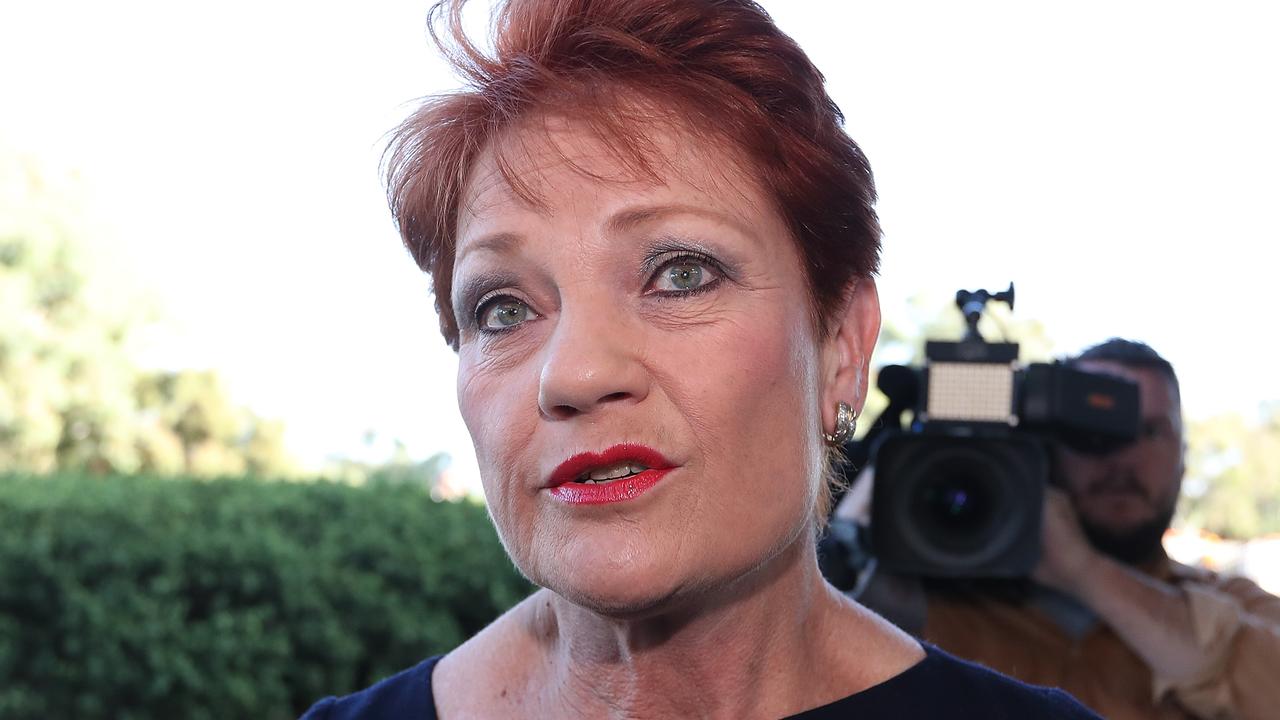Morrison passes up ‘flawed’ UN migration compact
Bill Shorten says he is “not fussed” about signing the UN migration compact, despite a senior frontbencher criticising the PM’s decision to drop out.

Bill Shorten says he is “not fussed” about signing the UN migration compact, despite one of his senior frontbenchers criticising Scott Morrison’s decision to drop out today.
The Prime Minister announced today that Australia will drop out of the UN pact in order to ensure control of the borders.
The Opposition Leader said he would not reverse the government’s decision if security officials told him not to.
“We’re not fussed if they sign or don’t sign. Obviously we’ll take the advice of our security experts on what we should or shouldn’t do,” Mr Shorten told reporters in Sydney.
“When you talk about this, the big issues here are not a UN migration compact, the issues here are when are we going to tackle number of people here on temporary visas which give them work rights? The big issues here are when are we going to tackle congestion?”
His defence spokesman Richard Marles said this morning that Mr Morrison’s decision showed the gulf between Labor and the Coalition on migration.
“From day one, they have basically turned their back on the world’s displaced and sought to make Australia isolated. We have a very different view,” he told Sky News.
“Offshore processing will remain a part of the policy mix if Labor were to form a government but our disposition has always been to work with the global community.”

PM passes up UN migration pact
Australia will refuse to sign up to the UN’s migration pact, which has already been rejected by the US and several European countries, on the grounds it would weaken border security and undermine the annual immigration program.
Scott Morrison will today announce the decision to snub the UN’s Global Compact for Migration.
The Prime Minister said the compact, which seeks countries to sign up to a global set of principles for safe, orderly and regular migration, was a hollow document that was contrary to the national interest and would be used against Australia by critics of its border policies.
“I’m not going to sign up to an agreement that I believe will only be used by those who have always tried to tear our stronger border policies down,” Mr Morrison said.
“I experienced this first-hand back when I was responsible for stopping the boats. We must always decide on these issues and not have our laws undermined by outside influences.”
The former immigration and border protection minister said a fundamental flaw in the compact was a failure to distinguish between illegal and “proper” migration when it came to the provision of welfare benefits.
Speaking to The Australian last night, Mr Morrison said “our record on border protection and immigration is second to none”.
“We don’t feel the need to join the internationalist clubs to work out how to get this done,” he said.
Home Affairs Minister Peter Dutton attacked the UN and accused it of deliberately seeking to weaken border control. “Our government fought hard to clean up Labor’s border and boats mess and we aren’t going to allow any international body to weaken our borders,” Mr Dutton told The Australian. “We fought too hard to stop the deaths at sea and remove kids in detention and we aren’t going to have our tough stance compromised by any other country.”
Mr Dutton said this morning that signing up to the UN compact would have “undermined” Operation Sovereign Borders and may have been used by the courts to let more refugees to stay in Australia.
“We’re concerned about the way that might be interpreted by the courts here. We’ve seen a lot of activity by the courts in relation to migration law in our country,” he told Sky News.
“It (the compact) really undermines the tenants of Operation Sovereign Borders and it would starve the government of the opportunity that we have to say that we’ve stopped boats and people won’t come to Australia by boats, and if they do they’ll be returned to their country of origin.”
Opposition defence spokesman Richard Marles would not say this morning if Labor would reverse Mr Morrison’s decision on the compact if they win the next election, but he said the move showed the differences in the major parties’ approach to global migration issues.
“From day one, they have basically turned their back on the world’s displaced and sought to make Australia isolated. We have a very different view,” he told Sky News.
“Offshore processing will remain a part of the policy mix if Labor were to form a government but our disposition has always been to work with the global community.”
A joint statement to be released today by Mr Morrison, Mr Dutton and Foreign Affairs Minister Marise Payne said the compact was in direct conflict with Australia’s principles of orderly migration.
“We do not believe that signing this agreement will add anything to enhancing our capacity to controlling our borders and managing our successful immigration program,” the statement will say. “That’s why we have decided that Australia will not support signing up to the UN Global Compact for Migration in mid-December.
“The compact was promoted as a way to promote safe, orderly and regular migration. We already achieve all of these goals. We also believe that adopting the compact would directly conflict with important principles that have underpinned our successful approach.”
A conference to formally adopt the Global Compact for Safe, Orderly and Regular Migration will be held in Morocco next month.
The compact claims to have 23 principles, including addressing the “structural” issues that force people to leave their country of origin.
“ … it intends to reduce the risks and vulnerabilities migrants face at different stages of migration by respecting, protecting and fulfilling their human rights and providing them with care and assistance,” a UN summary of the compact states.
“ … (it) seeks to address the legitimate concerns of states and communities, while recognising that societies are undergoing demographic, economic, social and environmental changes at different scales that may have implications for and result from migration.”
Earlier this month, Australia endorsed a similar global deal on refugees, despite Mr Dutton’s strong criticism of the global migration compact.
Australia supported the UN Global Compact on Refugees — which sets up four-yearly global refugee forums aimed at getting countries to commit to resettling more refugees — but expressed concerns about the agreement.
The Australian first revealed Australia could withdraw from the UN Global Compact for Migration in July, with Mr Dutton subsequently saying he would not sign the deal in its current form.
Additional reporting: Primrose Riordan, Richard Ferguson



